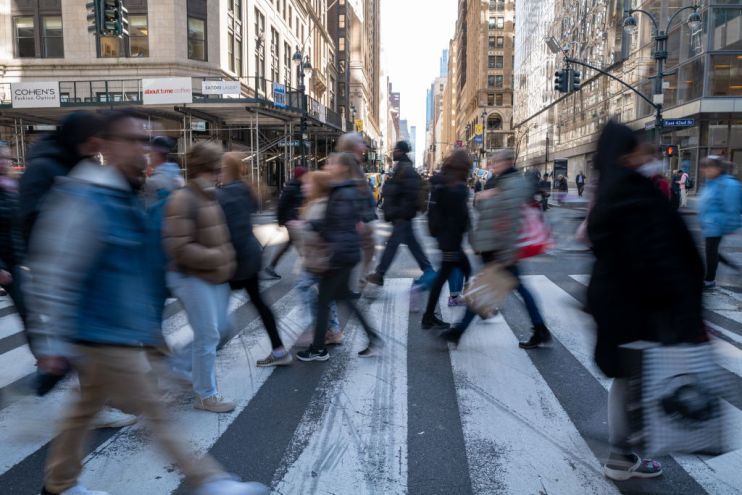US inflation falls faster than expected to 4.9 per cent, raising chances of Fed rate hike pause

US inflation fell faster than expected last month, potentially paving the way for the Federal Reserve to pause its aggressive interest rate hike campaign at its meeting next month, official figures unveiled today unveiled.
The rate of price increases in the world’s largest economy slipped to 4.9 per cent in April, down from five per cent in March, according to the US Bureau of Labor Statistics.
Wall Street thought inflation would hold steady.
UK inflation is more than double the US’s rate, running at 10.1 per cent. April data is released on 24 May.
The latest data extends inflation’s steady decline from a peak of more than nine per cent last summer, likely strengthening market expectations that Fed Chair Jerome Powell and co will stop raising borrowing costs at its next meeting on 14 June.
So far, he and the rest of the federal open market committee (FOMC), the group tasked with setting interest rates across the pond, have lifted rates 500 basis points in just over a year to a range of five and 5.25 per cent, the most aggressive increase since the 1980s.
At its latest meeting earlier this month, the Fed dropped language from its policy statement that suggested it thought additional rate rises could be necessary to tame prices.
Powell characterised that omission as a significant change in the central bank’s thinking.
However, within today’s data, there were signs that price pressures are withstanding the Fed’s assault.
Core inflation – which strips out food and energy price movements and is seen as a more accurate measure of underlying inflation – hit 5.5 per cent last month, still very high, but down from 5.6 per cent in March.
Fed officials of late have opened the door to an eleventh straight rate rise next month.
New York Fed president John Williams, a member of the FOMC, said yesterday the monetary authority hasn’t explicitly said it’s “done raising rates”.
However, the 0.4 per cent monthly inflation rate in April will not be enough to “convince the Fed to hike again at the June FOMC meeting,” Andrew Hunter, deputy chief US economist at consultancy Capital Economics, said.
He added that nagging core inflation suggests “rates will need to remain high for a little longer than we have assumed”.
Bank of England officials tomorrow poised to divert from the expected Fed rate path and raise interest rates for the twelfth time in a row.
Investors reckon Bank Governor Andrew Bailey and the rest of the monetary policy committee will nudge UK borrowing costs up 25 basis points to 4.5 per cent, their highest level since October 2008.
There could be at least one more rise on the way in the coming months, markets also suspect. European Central Bank officials also raised rates 25 basis points earlier this month.
Wall Street opened higher on the inflation news. The US dollar weakened about 0.2 per cent against a basket of comparable currencies.
Short-term US debt rates fell on growing Fed pause bets.